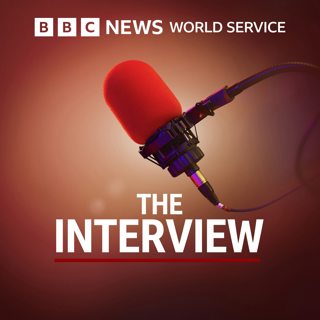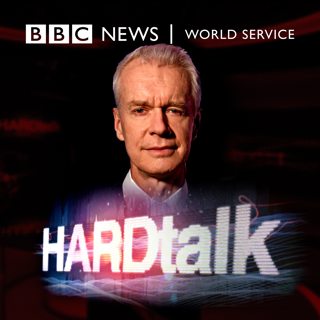
Sir Anthony Hopkins: I turn turmoil into energy
‘So-called turmoil or shortcomings in my life? I turn them into power or energy’Best known for playing the serial killer Dr. Hannibal Lecter in the 1991 thriller ‘The Silence of the Lambs’, Sir Anthony’s journey to Hollywood stardom started with humble beginnings.Born into a working class family in the Welsh steel town of Port Talbot in 1937, his parents first ran a bakery, and then later a pub. Their strong work ethic was imparted on their son, who, despite struggling socially and educationally in his early years, was determined to make a success of himself. Throwing himself into reading and creative pastimes like music and art, Sir Anthony studied at both the Welsh Royal College of Music and Drama and the Royal Academy for Dramatic Art.His early career saw him working alongside greats including Katharine Hepburn, Lawrence Olivier, Richard Burton and Peter O’Toole across both stage and screen, with his international breakout coming in the 1980 film ‘The Elephant Man’, which received multiple Oscar and Golden Globe nominations.It would be another decade before he truly cemented his place as a Hollywood A-lister: playing the infamous serial killer Dr. Hannibal Lecter, regarded by many critics as one of the greatest film villains of all-time. The role won him the first of his two Oscars, with the second coming for his performance in the 2020 film ‘The Father’.But the 87-year-old’s long journey to the very top was not only a professional struggle, but at times a personal struggle too, having also battled alcoholism early on in his career - which he says made him a difficult person to work with.Thank you to the Culture team for their help in making this programme. The Interview brings you conversations with people shaping our world, from all over the world. The best interviews from the BBC. You can listen on the BBC World Service on Mondays, Wednesdays and Fridays at 0800 GMT. Or you can listen to The Interview as a podcast, out three times a week on BBC Sounds or wherever you get your podcasts.Presenter: Katie Razzall Producers: Ben Cooper, Roxanne Panthaki and Lucy Sheppard Editor: Justine LangGet in touch with us on email TheInterview@bbc.co.uk and use the hashtag #TheInterviewBBC on social media.(Image: Sir Anthony Hopkins Credit: Darren Arthur/Getty Images for GEA)
19 Nov 202522min

Noura Erakat, Palestinian-American humans rights lawyer and professor
BBC North America correspondent Nomia Iqbal speaks to Noura Erakat, Palestinian-American human rights attorney and professor at Rutgers University. As well as being a legal scholar she is also an outspoken advocate for justice in Palestine, she went on to become one of the first Palestinian women to address the United Nations Security in October this year where she spoke on the situation of women and girls in GazaNoura Erakat reflects on the global response to the war in Gaza and what international law can and cannot do in times of crisis. We explore what accountability might look like and why, for many Palestinians, the law has so often failed them.She talks about growing up as part of the Palestinian diaspora in the United States and how this has shaped her life. The Interview brings you conversations with people shaping our world, from all over the world. The best interviews from the BBC. You can listen on the BBC World Service on Mondays, Wednesdays and Fridays at 0800 GMT. Or you can listen to The Interview as a podcast, out three times a week on BBC Sounds or wherever you get your podcasts.Presenter: Nomia Iqbal Producer: Alex Lederman, Farhana Haider Editor: Justine LangGet in touch with us on email TheInterview@bbc.co.uk and use the hashtag #TheInterviewBBC on social media.(Image: Noura Erakat Credit: Barbara Monteiro)
17 Nov 202522min

Brandi Carlile, singer-songwriter: I believe in the separation of church and state
‘I believe so profoundly in the separation of church and state, and in the dangers of theocracy creeping into the corners of a democracy’BBC Music Correspondent Mark Savage speaks to US singer-songwriter, producer and performer Brandi Carlile about the personal and political stories behind her songs.An LGBTQ icon, she sets out her fears about the threat to same-sex marriage in today’s United States, and the impact that has had on her own family. And she shares the strain her own sexuality put on her relationship with her mother while growing up in rural America. It was country music, she says, that brought them together.Brandi Carlile has won eleven Grammy awards, been nominated for an Oscar, and worked with Elton John and Joni Mitchell. Now releasing her eighth album, she reveals she went into the studio with no songs prepared, only feelings and nostalgia, resulting in a deeply personal record reflecting on childhood memories, parenthood and politics. Thank you to Mark Savage for his help in making this programme. The Interview brings you conversations with people shaping our world, from all over the world. The best interviews from the BBC. You can listen on the BBC World Service, Mondays, Wednesdays and Fridays at 0800 GMT. Or you can listen to The Interview as a podcast, out three times a week on BBC Sounds or wherever you get your podcasts.Presenter: Mark Savage Producer: Lucy Sheppard Editor: Justine LangGet in touch with us on email TheInterview@bbc.co.uk and use the hashtag #TheInterviewBBC on social media.(Image: Brandi Carlile Credit: Eric Thayer / Los Angeles Times via Getty Images)
14 Nov 202522min

Maria Alyokhina, Russian punk activist: The price of political art was prison
Vitaly Shevchenko speaks to Maria Alyokhina, founding member of the Russian punk activist group Pussy Riot, about the power and the price of protest.Pussy Riot came to the world’s attention with its Punk Prayer, an angry anti-Putin anthem performed in a Moscow church. Maria Alyokhina spent two years incarcerated in a penal colony as a result. It was worth it, she says, to show the world what life under President Putin was like. She was freed under an amnesty ahead of the 2014 Winter Olympics in Sochi, but her ongoing activism saw her living under surveillance and then house arrest, eventually fleeing Russia in a dramatic escape. Today, she continues to challenge Putin’s regime from outside her home country. Thank you to the Ukrainecast team for its help in making this programme. The Interview brings you conversations with people shaping our world, from all over the world. The best interviews from the BBC. You can listen on the BBC World Service on Mondays, Wednesdays and Fridays at 0800 GMT. Or you can listen to The Interview as a podcast, out three times a week on BBC Sounds or wherever you get your podcasts.Presenter: Vitaly Shevchenko Producer: Lucy Sheppard Editor: Justine LangGet in touch with us on email TheInterview@bbc.co.uk and use the hashtag #TheInterviewBBC on social media.(Image: Maria Alyokhina. Credit: Ina Fassbender/AFP)
12 Nov 202522min

Sir Salman Rushdie: Writing fiction in a time of lies
James Coomarasamy speaks to acclaimed author Sir Salman Rushdie as he publishes his first work of fiction since surviving a near-fatal attack in 2022, by a man armed with a knife, who is now serving 25 years in prison. The Eleventh Hour, his new collection of novellas and short stories explores mortality, farewells and even the afterlife. They feature a rich cast of characters - a musical prodigy in post-Partition Mumbai, a ghost with a secret at a Cambridge college and a young writer caught in a Kafkaesque nightmare in modern-day America.Sir Salman speaks candidly about the threats to free expression, the rise in book bans across the US, and the political climate shaped by figures like Donald Trump. He reflects on the pressures facing writers and readers in a time of disinformation and growing censorship.We discuss fiction’s power to illuminate truth and why, after everything, he remains committed to the freedom to imagine.The Interview brings you conversations with people shaping our world, from all over the world. The best interviews from the BBC. You can listen on the BBC World Service, Mondays, Wednesdays and Fridays at 0800 GMT. Or you can listen to The Interview as a podcast, out three times a week on BBC Sounds or wherever you get your podcasts.Presenter: James Coomarasamy Producer: Nigel Doran and Farhana Haider Editor: Justine LangGet in touch with us on email TheInterview@bbc.co.uk and use the hashtag #TheInterviewBBC on social media.(Image: Sir Salman Rushdie. Credit: Matthew Horwood/Getty Images)
10 Nov 202522min

Nhial Deng Nhial: ‘South Sudan is being run down’
‘There's basically a total failure of governance. Nothing is working. There is very serious political instability that has actually manifested itself in violence all across the country.’James Copnall speaks to senior South Sudanese politician Nhial Deng Nhial, about the political instability that’s threatening the future of the world’s youngest country.Nhial, who has served in numerous important roles in, including as South Sudan’s Foreign Minister, made headlines last month when he openly criticised the country’s president, Salva Kiir, going from former ally to a voice of opposition. South Sudan gained independence from Sudan in 2011 after decades of struggle led by the Sudan People’s Liberation Movement, or SPLM. But just two years into independence, a power struggle between President Salva Kiir and his vice-president Riek Machar led to a civil war in which 400,000 lost their lives. The civil war was brought to an end in 2018 through a peace deal that saw the creation of a unity government that was meant to pave the way for elections in 2022. However, these never happened, and following renewed clashes between the army and opposition forces earlier this year. The United Nations is deeply concerned about a possible return to outright war. Amid these growing tensions in the country, even once-staunch allies of the President are now speaking out - including Nhial Deng Nhial who suspended his membership of the ruling SPLM, and accused the government of corruption, fuelling insecurity and refusing to hold long-delayed elections. President Salva is no stranger to public criticism - but there was a sense of shock that the latest to take aim at South Sudan’s leader was Nhial Deng Nhial, a prominent figure in the country, and the party, for decades. The Interview brings you conversations with people shaping our world, from all over the world. The best interviews from the BBC. You can listen on the BBC World Service, Mondays and Wednesdays at 0700 GMT. Or you can listen to The Interview as a podcast, out twice a week on BBC Sounds or wherever you get your podcasts.Presenter: James Copnall Producer: Ben Cooper Editor: Justine LangGet in touch with us on email TheInterview@bbc.co.uk and use the hashtag #TheInterviewBBC on social media.(Image: Nhial Deng Nhial Credit: HANNAH MCNEISH/AFP/GettyImages)
7 Nov 202522min

Sir Bradley Wiggins: I couldn’t see hope or joy
''There were periods when I couldn’t see any hope or joy,'' says British cycling champion Sir Bradley Wiggins in a deeply personal interview with Anna Foster The first Briton to win the Tour de France, he collected five Olympic gold medals throughout his career. But his stellar reputation came under attack as he faced allegations of doping. What followed was a descent into drug addiction that was fueled, he says, by the pain of an absent father and the abuse he suffered at the hands of a coach, all while growing up in the public eye.Today he is a “better version of himself”, supported by close family, clean of drugs for a year and in therapy. The Interview brings you conversations with people shaping our world, from all over the world. The best interviews from the BBC. You can listen on the BBC World Service, Mondays and Wednesdays at 0700 GMT. Or you can listen to The Interview as a podcast, out twice a week on BBC Sounds or wherever you get your podcasts.Presenter: Anna Foster Producers: Jade Lauriston and Lucy Sheppard Editor: Justine LangGet in touch with us on email TheInterview@bbc.co.uk and use the hashtag #TheInterviewBBC on social media.(Image: Sir Bradley Wiggins Credit: Nordin Catic/Getty Images)
5 Nov 202522min

Edward Enninful, former editor of British Vogue: fashion has to be more inclusive
‘Fashion has to be more inclusive, it has to speak to people outside the normal demographic’BBC presenter Amol Rajan speaks to Ghanaian-born Edward Enninful, who rose to the pinnacle of fashion in Britain as the editor-in-chief of British Vogue.Enninful has dedicated his career to making fashion representative and relevant to all, ignoring the accepted conventions on which type of models will make magazines and clothes sell. Even before I knew what inclusivity was, he says, I knew something wasn’t right. But now Enninful warns fashion is at risk of returning to a narrow definition of beauty, where being thin, European and young is the ideal. In this interview, he sets out an alternative vision of fashion where diversity is welcomed, and the beauty of older women is recognised - inspired by the ‘bodacious’ African women dressed by his seamstress mother throughout his childhood.Enninful arrived in London from Ghana as a boy, and was fashion director of the influential i-D magazine by the age of 18. After being appointed editor of British Vogue in 2017, he spent six years at the helm before stepping down. He is now launching a new fashion and media platform EE72.Thank you to the Radical podcast team for their help in making this programme. The Interview brings you conversations with people shaping our world, from all over the world. The best interviews from the BBC. You can listen on the BBC World Service, Mondays and Wednesdays at 0700 GMT. Or you can listen to The Interview as a podcast, out twice a week on BBC Sounds or wherever you get your podcasts.Presenter: Amol Rajan Producers: Lucy Sheppard and Grace Reeve Editor: Justine LangGet in touch with us on email TheInterview@bbc.co.uk and use the hashtag #TheInterviewBBC on social media.(Photo: Edward Enninful. Credit: Mike Coppola/Getty Images)
3 Nov 202523min






















